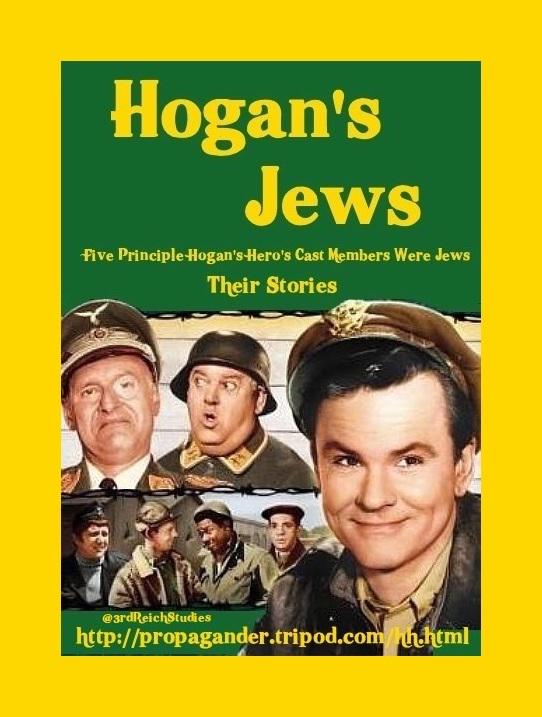The Propagander ™ FAQ
Worst Dictator of Modern Times: Hitler or Stalin?
In regards to total deaths attributed to each, Stalin comes out as "worst" (however, since Hitler was the main cause of WW2 and you attributed all those deaths to Hitler, he would be #1). If the criterion is which was the most Evil and cruel in his methods, that would be Hitler. While Stalin's Gulag, Show Trials and executions were pragmatic techniques utilized to increase his own power and advance Communist aims, Hitler's were the result of a spurious cognitive philosophical construct.
In other words, Stalin’s murders were the results of a practical policy (as were Mao's) in which said murders were instrumental in achieving certain positive goals. While his methods were cruel, the policy ends they were committed to advance were reasonable and understandable. He wanted to ensure that his power was undisputed and his policies of collectivization and the state-run economy went forward unopposed. Any murdering done to further these rational ends was justified, in Stalin’s mind, as pragmatic steps to promote his policies. For example, Stalin was anti-Semitic, and many statements to that effect are attributed to Stalin by those few who survived to write about it,in particular his predecessor, Nikita Khrushchev. But Stalin was practical enough to guard against letting his anti-Semitism interfere in his main goals, and would use anyone, Jew or Gentile, regardless of whether he liked them or not, to further said goals.
In Hitler's case, his aims were less rational and much more emotional. While Hitler did champion policies designed to make Germany the most powerful nation in Europe, and perhaps the world--which is an understandable goal--the methods he utilized to achieve this end were often irrational and counter-productive. Hitler killed Jews just to kill Jews, whom he claimed, as a group, were a parasitic people infecting the other races. But this murderous impulse was decidedly in opposition to pragmatic policy to achieve his goal of making Germany a superpower.
A case in point was Hitler's insane persecution of Jewish scientists such as Albert Einstein. Many of the Jewish scientists Hitler ran out of Germany ended up on the Manhattan Project, developing an atomic bomb for the United States. Had Hitler, instead of killing or running off these scientists, used them to build the bomb for him, he'd have denied this weapon to the Americans while adding it to his own arsenal. A-Bombs on the tips of V-2 rockets would have been unstoppable.
On an even more practical level, when the Soviet Red Army was fighting its way toward Germany and every German soldier was needed at the Front, Hitler gave first priority on German railroads to shipping the Jews to death camps instead of the soldiers to the front lines. This was not a rational utilization of resources and was something Stalin would have never done. Stalin kept his eyes firmly on the prize, while Hitler followed his whims and emotions, regardless of the consequences.
Most Successful: The question of which was the "worst" dictator of all time is less interesting to my mind than the question of which was the most successful. The answer to this question is Stalin, hands down. Hitler was, in the end, a total failure, and his main goals were not only not realized, but made untenable.
Hitler’s main goals were,
1) to defeat Communism. The end result of his policies to that end was that the USSR ended up dominating half of Germany and all of Eastern Europe. Failure.
2) Hitler wanted to rid the world of Jews. The end result of his efforts in this respect--the Holocaust--was instrumental in setting the stage for the birth of the State of Israel (though it was primarily the bravery of the Jews themselves who made it a reality). Failure.
3) Hitler wanted to make Germany a superpower. The end result of his efforts in this respect was total defeat for Germany, with one half of his country occupied by the West and the other by the USSR, his arch-enemy. Failure.
The ultimate fate of the two dictators illustrates more than anything else the relative success they enjoyed. Hitler died biting on a vial of cyanide while blowing his brains out with a pistol as the Red Army surrounded his Bunker in occupied Berlin. Stalin died of old age peacefully in his sleep (as did Mao) in his dacha as leader of one of the worlds two superpowers.
Using the words of this question literally, Adolf Hitler was the "worst" dictator of all time. He was "worst" in the sense that the end result of his rule was total defeat, and "worst" in the sense that his murders, compared to those of Stalin and Mao, were in many respects senseless and achieved no reasonable end.
Munich: It is instructive that when the Western Allies had to make a choice between Hitler and Stalin in 1938, they chose Hitler.
They first attempted to deal with Hitler while leaving the repulsive and untrustworthy Stalin completely out of the process, which resulted in the weak Appeasement at Munich. Without the USSR joining the West in blocking Hitler's expansionism, there was really no hope to do so, but the West was unwilling, at that point, to compromise with Stalin's evil to check Hitler's. The failure to make this unpleasant and difficult assessment early led to years of war and millions of lost lives. But this is hind-sight, and was not at all obvious at the time.
Even after Hitler invaded his short-term partner, there were many who still were not able to wrap their brains around this distasteful choice. Harry Truman was one of those. His first reaction was to let the two dictators destroy each other, while exercising the option to tacitly or openly help the side that seemed to be losing in order to extend the conflict and further the damage to both sides. Even after the US, Britain and the USSR became allies, Stalin remained suspicious that this was, in fact, the Western strategy, pointing to the continued postponement of the Second Front in France as proof of this hidden policy.
This debate is still ongoing, with a vocal minority continuing to argue that Stalin's evil was more dangerous than Hitler's, and that the West should not have allied itself with the USSR. They opine that the subsequent domination of Eastern Europe and the elevation of the USSR to superpower status proves their point, while claiming that Hitler's aims, assumed to be limited to Europe, were less of a threat, at least to America. Former presidential candidate and Nixon speech-writer Patrick J. Buchanan, author of Churchill, Hitler, and The Unnecessary War: How Britain Lost Its Empire and the West Lost the World, is perhaps the most eloquent champion of this view. Buchanan's view would have been more arguable before 1990, however, as the subsequent fall of the Soviets due to the weight of the regimes contradictions tends to take away much of the relevancy of his argument.
While neither dictator was in any way preferable to the other, the fact remains inescapable that avoiding the choice altogether would not have been a viable solution. In my view, an accommodation with the USSR at the time of Munich would have been less dangerous than allowing Hitler to gain the strength he did accumulate through the conquest of most of Europe. Even if Stalin had been able to dominate Eastern Europe in the process of partnering with the West to 'stop Hitler' in 1938, it would certainly not have been the type of domination Stalin ultimately achieved in the face of a defeated and prostate Germany in 1945.
The best policy at Munich would have been to NOT choose between Hitler and Stalin at that point. Utilizing Stalin at Munich could have resulted in a more traditional Balance of Power political dynamic, serving to avoid WW2 altogether and maintaining the peace by keeping Stalin and Hitler perpetually in fear of the other. In the event, Chamberlain, by appeasing Hitler and leaving Stalin out of the process, made Hitler's early conquests possible.
If Churchill had been PM at the time of Munich, he'd have advocated this traditional Balance of Power dynamic to stymie the ambitions of both of the two dictators. He'd no doubt have played one against the other and kept the Balance necessary to keep the peace. Chamberlain, by refusing to take this statesman-like approach, and in effect choosing Hitler over Stalin, doomed the world to the opposite of 'peace in our time.'
Personal Relationships: Hitler was nothing if not confident. In fact, he was overconfident to the point of absurdity. Ian Kershaw's first volume of his extremely well-researched Hitler biography is well-named: Hitler 1889 - 1936 Hubris. Stalin was also a confident fellow, but he was always--especially as he aged--very, very paranoid, suspecting his wife, children, and even his doctors of plotting against him.
The major difference between the two, as regards the relative ambitions of underlings, is that Hitler developed personal relationships--friendships, if you will--with his cronies and advisors, and he tended to remain loyal to those personages even at the expense of practical policies and initiatives. For example, Stalin would have either executed Goering or busted him down to private after the Battle of Britain, while Hitler kept his old friend on regardless of his rank incompetence. See: Why Didn't Adolf Hitler Fire Hermann Goering?
Stalin would simulate friendship with his cronies, and then sign their death warrants with a complete lack of conscience in between toasts. The only comparable example of Hitler turning against a high-level crony was his murder of Roehm. He'd not have done so if he could have found any other way to reconcile the Army with his rule, and he genuinely believed that Roehm was set to betray him. Roehm helped his enemies (Himmler, Goering, etc.) in the process of gathering incriminating material against because he was completely convinced that his friend Hitler--whom he addressed with the familiar 'Du'--would never turn against him. He didn't even bother to hide his differences with his Fuehrer or his plans to oppose Hitler's opposition to what Roehm called a second revolution. He assumed that the two friends would eventually come to an understanding and compromise on the subject.
It is instructive that when Hitler did turn against him, it was with the anger of a friend betrayed, not merely a cold-blooded political move, though its practical effect was such. Hitler himself stormed Roehm's headquarters with his pistol in hand and confronted Roehm with his supposed betrayal. Stalin would not only have never taken a hand in such a move himself, but he'd not have taken it as personally as did Hitler.
Stalin, even through the prism of his later paranoia, was all business. In the end, it was Stalin's cold-hearted efficiency that helped him to defeat his competitor, the erratic and emotional German Fuehrer.
Conclusion: Adolf Hitler was the "worst" dictator of all time. He was "worst" in the sense that the end result of his rule was total defeat, and "worst" in the sense that his murders, compared to those of Stalin’s, were in many respects senseless and achieved no reasonable end.
 Copyright © 2011-2013
Walther Johann von Löpp
All Rights Reserved
Copyright © 2011-2013
Walther Johann von Löpp
All Rights Reserved
 Twitter: @3rdReichStudies
FB: Horrific 20th Century History
Twitter: @3rdReichStudies
FB: Horrific 20th Century History
























Disclaimer: The Propagander!™ includes diverse and controversial materials--such as excerpts from the writings of racists and anti-Semites--so that its readers can learn the nature and extent of hate and anti-Semitic discourse. It is our sincere belief that only the informed citizen can prevail over the ignorance of Racialist "thought." Far from approving these writings, The Propagander!™ condemns racism in all of its forms and manifestations.
Fair Use Notice: The Propagander!™may contain copyrighted material the use of which has not always been specifically authorized by the copyright owner. We are making such material available in our efforts to advance understanding of historical, political, human rights, economic, democracy, scientific, environmental, and social justice issues, etc. We believe this constitutes a "fair use" of any such copyrighted material as provided for in section 107 of the US Copyright Law. In accordance with Title 17 U.S.C. Section 107, the material on this site is distributed without profit to those who have expressed a prior interest in receiving the included information for research and educational purposes. If you wish to use copyrighted material from this site for purposes of your own that go beyond 'fair use', you must obtain permission from the copyright owner.


 Copyright © 2011-2013
Walther Johann von Löpp
All Rights Reserved
Copyright © 2011-2013
Walther Johann von Löpp
All Rights Reserved
 Twitter: @3rdReichStudies
FB: Horrific 20th Century History
Twitter: @3rdReichStudies
FB: Horrific 20th Century History




Copyright © 2011-2013 Walther Johann von Löpp All Rights Reserved
Twitter: @3rdReichStudies FB: Horrific 20th Century History



